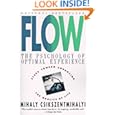Tuesday, November 25, 2008
Second Language Acquisition
Thursday, November 20, 2008
Web 2.0 and the Future of Education

Wednesday, November 19, 2008
Fear of Technology

The first part of our discussion in class today about Web 2.0 and the almost illogical fear of web 2.0 technologies that some people have was interesting to me because I think that it is a common problem. It was obvious from the quotes shared by Matt and Neil in their presentation that these fears are generally the result of a misunderstanding of new technologies and their capabilities. It raised the question in my mind of what our responsibility might be to educate people about the technologies that are emerging and what they can contribute to learning.
Tuesday, November 18, 2008
Gaming in Education

I really enjoyed our discussion on gaming in education yesterday. One of the things that I found interesting were the comments that were made regarding "hiding the learning" from the learner. I can see how a game that feels like school would be a complete turn off (and not much of a game at all). So, designing a learning experience that feels like a game seems critical. One of the questions that this raised in my mind, however, was how "hiding the learning" impacts transfer and retention of learning. And, maybe the deeper question is can we learn something without being aware that we have learned? I don't have good answers to those questions; it is something that I need to spend some more time thinking about.
Wednesday, November 12, 2008
Professional Journal Reports--Part 2
- Association of Educational Communication & Technology
- Is designed for practitioners--How to apply instructional technology principles
- Short articles (more like a Trade Magazine than a research journal)
- Published by AEA (American Evaluation Association)
- Available in HBLL
- Focuses on Technology rather than Science (Technology is not an applied science--they are two different fields and ask different questions--like Gibbons argument)
- What is the "Open University"?
- Contains both scholarly (research) and practical (case studies, etc.) articles
- "Predicting Success among Distance Learners"
- Mostly practical articles, often aimed at new evaluators
- Preparing students in graduate programs to make a meaningful contribution to the field
- Very broad sampling of topics & articles
- Can be hard to navigate because of the wide variety of topics addressed
- Richard Light--Learning happens when the learner participates in the process (group learning)
- Decameron Web Project
- Bug Scope Project (students send bug to U. of Illinois and then can login to a site and view real time miscrope images of the bug they sent in to the lab
Monday, November 10, 2008
Professional Journal Reports
- Who reads this journal? Is it just faculty in teacher education departments or do practitioners read it
- Do focused study guides limit the learning that students experience? Do they really study content outside of what they see on the guide?
- What does it mean to be an "academic journal"?
- Is The Religious Educator "peer reviewed?"
- Outside of formal religious educators at CES schools, who reads it?
- It was interesting to hear about CES' "teaching emphasis". I would be interested to know what brought about that change
Thursday, November 6, 2008
Distance Education
http://www.insidehighered.com/views/2008/11/06/overman
This is an interesting essay written by a faculty member at Elon. She talks about her first experience teaching an online course and the challenges and benefits that came with it. She addresses a lot of the issues that are common to discussions surrounding distance ed and helped me see that not everything I believed about online courses is true.
One of the most interesting things that she mentioned is that "students can learn just as effectively online as in a traditional classroom, with some tweaks." She mentions a few of those "tweaks", but I was left wondering what the key factors are that make an online course meaningful. I have never taken an online course or taught one, but I can imagine that there is potential for that sort of class to be something less than desirable (but I guess the same could be said for traditional courses as well).
Might "blended" learning environments be a good hybrid? It seems like this allows for elements of both types of learning environments to be capitalized on and maximized.
Wednesday, November 5, 2008
Online Assessments
Sunday, November 2, 2008
Ghosts, Skylines, & Shuri's Ph. D


So, this is just a random assortment of clips and photos.
The Boston Sports Scene



So, within the last 24 hours I have visited two of the most historic sports venues in the world--the Boston Garden (now known as the TD Banknorth Garden) and Fenway park. I thought I would post a couple of pictures so you could see a little bit of what I saw. The Garden was amazing. I've never been at a sporting event with more energy and this was a regular season game that was never even very close. Boston was up 5-1 late in the 3rd Period but the fans stuck around and were as loud then as at any point in the game. I felt like it was an "experience" rather than just watching a game. I also sat next to some season ticket holders which gave everything a very authentic feel (I think I heard more f-bombs in those 3 hours than I probably have my whole life).